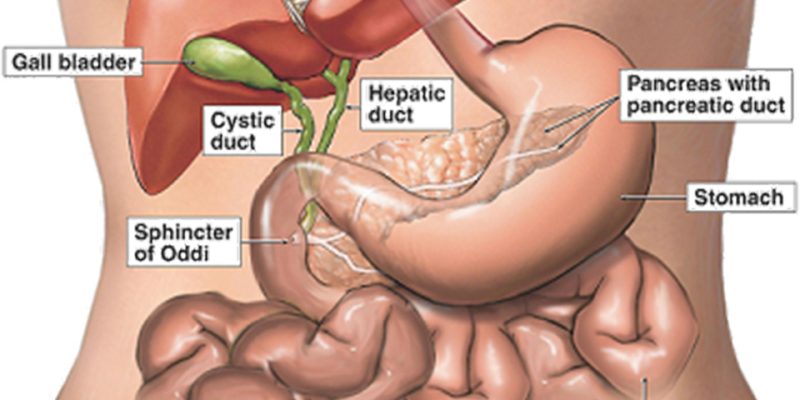Understanding the Surge in Gallbladder Hospital Admissions
In recent years, there has been a concerning surge in hospital admissions related to gallbladder issues. As a Specialist Gut Dietitian with expertise in chronic health conditions, I find it imperative to shed light on this growing health concern.
So why are we seeing this surge? It can be attributed to a myriad of factors, with a high percentage coming from poor eating habits. Covid and the cost of living crisis a critical contributor.
Trendy diets like Keto, Carnivore, and fast weight loss fads, along with the misuse of weight loss injections, have exacerbated the problem also. Additionally, the intricate link between thyroid function and gallbladder health further complicates the scenario.
In this blog, we’ll delve into the reasons behind the spike in gallbladder admissions, the role of dietary habits, and the vital importance of seeking guidance from a Specialist Dietitian.
The Gallbladder: An Essential Organ
The gallbladder, a small but crucial organ located beneath the liver, plays a significant role in digestion. Its primary function is to store bile produced by the liver and release it into the small intestine to aid in the digestion of fats. When this process is disrupted, it can lead to the formation of gallstones or other gallbladder-related issues, causing immense discomfort and requiring medical intervention.

The Impact of Poor Dietary Habits
One of the leading causes behind the surge in gallbladder admissions is the prevalence of poor dietary habits. The consumption of high-fat, processed foods, characteristic of the fast-food culture, significantly increases the risk of developing gallstones. These foods not only lead to weight gain but also put undue stress on the gallbladder by prompting it to release bile more frequently and in larger quantities, leading to the formation of stones.
Moreover, diets high in refined carbohydrates and sugars can contribute to gallstone formation by causing spikes in blood sugar levels and insulin resistance. The excessive consumption of these foods disrupts the delicate balance of hormones and enzymes involved in bile production and secretion, paving the way for gallbladder complications.
The Keto, Carnivore, and Fast Weight Loss Fads
In recent years, diets like Keto and Carnivore have gained widespread popularity for their purported weight loss benefits. While these diets may yield short-term results for some individuals, they often come at a significant cost to gallbladder health. The high-fat nature of these diets, coupled with a lack of dietary fiber from fruits and vegetables, can increase the risk of gallstone formation and exacerbate existing gallbladder issues.
Additionally, fast weight loss fads that promote extreme calorie restriction or the use of weight loss injections can have detrimental effects on gallbladder function. Rapid weight loss puts the body in a state of metabolic stress, leading to imbalances in bile composition and flow, thereby predisposing individuals to gallstone formation and related complications.
The Thyroid-Gallbladder Connection
The thyroid, a butterfly-shaped gland in the neck, plays a crucial role in regulating metabolism and hormone production. Imbalances in thyroid function, such as hypothyroidism (underactive thyroid) or hyperthyroidism (overactive thyroid), can have profound effects on gallbladder health.
In cases of hypothyroidism, where the thyroid gland is sluggish and metabolic rate is reduced, bile flow may be compromised, leading to the formation of gallstones. Conversely, hyperthyroidism can accelerate metabolism and bile production, increasing the risk of gallbladder issues.
The Role of a Specialist Dietitian
Amidst the rising tide of gallbladder-related admissions, the role of a Specialist Dietitian cannot be overstated. At 121 Dietitian we assist many patients with gallbladder disease.
Our team possesses the expertise to assess an individual’s dietary habits, identify potential risk factors, and formulate personalised dietary plans to promote gallbladder health.
Specialist dietitians educate about the importance of balanced nutrition, encourage the inclusion of fibre-rich foods, and provide guidance on navigating diets without compromising gallbladder function. Moreover, for individuals with underlying thyroid conditions, a Specialist Dietitian can collaborate with healthcare providers to devise comprehensive treatment plans that address both thyroid and gallbladder health.
Conclusion
In conclusion, the surge in gallbladder hospital admissions is a multifaceted issue exacerbated by poor dietary habits, trendy diets, and thyroid imbalances. As a Specialist Gut Dietitian, I urge individuals to prioritise their digestive health by adopting balanced dietary habits and seeking guidance from qualified healthcare professionals.
By addressing the root causes of gallbladder issues and promoting preventive measures, we can alleviate the burden on healthcare systems and improve the overall well-being of individuals.
Remember, your gut health matters, and investing in it today can lead to a healthier tomorrow. Get in touch at info@121dietitian.com or using the booking link below and we would be happy to assess and assist you further.
If you want to book your programme TODAY we would love to help you.
You can book a 121 Dietitian Programme today by clicking on the link below
Links included in this description might be Amazon affiliate links. If you purchase a product or service with the links that I provide I may receive a small commission.
